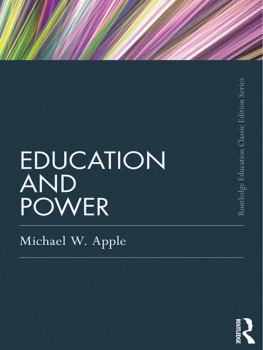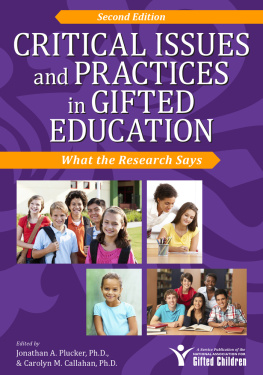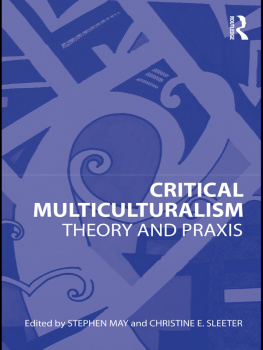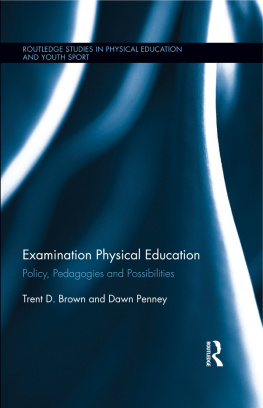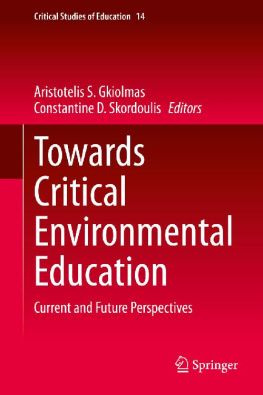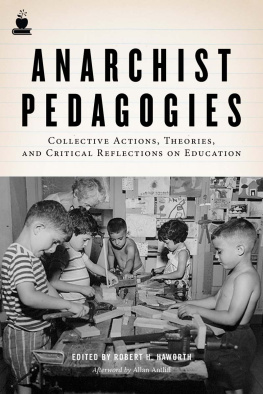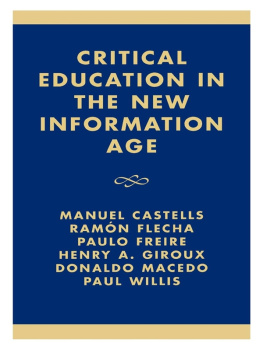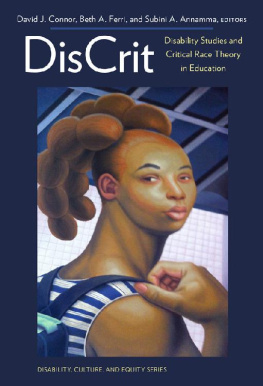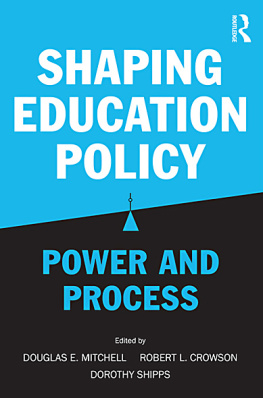EDUCATION and POWER
First published in 1982, Education and Power remains an important volume for those committed to critical education. In this text Michael W. Apple first articulated his theory on educational institutions and the reproduction of and resistance to unequal power relations, and provided a thorough examination of the ways in which racegenderclass dynamics are embedded in, and reflected through, curricular issues. While many of the theories set forward in this book are now taken for granted by the left in education, they were nothing short of revolutionary when first proposed.
In this newly reissued classic edition, Apple suggests that we need to take seriously the complicated and contradictory economic, political, and cultural structures that provide for some of the most important limits on, and possibilities for, critical education. He re-examines his earlier arguments and reflects on what has happened over the intervening years. Education and Power is a vital example of the call to challenge the assumptions that underpin so much of what happens in education.
Michael W. Apple is the John Bascom Professor of Curriculum and Instruction and Educational Policy Studies at the University of Wisconsin, Madison.
Routledge Education Classic Edition Series
The Routledge Education Classic Edition Series celebrates Routledge's commitment to excellence in scholarship, teaching, and learning within the field of education. Written by experts, these books are recognized as timeless classics covering a range of important issues, and continue to be recommended as key reading for education students and professionals in the area. With a new introduction that explores what has changed since the books were first published, where the field might go from here, and why these books are as relevant now as ever, the series presents key ideas to a new generation of educationalists.
Available titles:
Apple, Education and Power
Drummond, Assessing Children's Learning
(1993, second edition published 2007)
Gipps, Beyond Testing (1994)
Kincheloe, Teachers as Researchers
(1991, second edition published 2002)
Powell and Jordan, Autism and Learning (1997)
Smith, Understanding Reading
Swanwick, Teaching Music Musically(1999)
Tripp, Critical Incidents in Teaching (1993)
Wragg, An Introduction to Classroom Observation
(1993, second edition published 1999)
EDUCATION
and POWER
Michael W. Apple
Second Edition

This edition published 2012
by Routledge
711 Third Avenue, New York, NY 10017
Simultaneously published in the UK
by Routledge
2 Park Square, Milton Park, Abingdon, Oxon OX14 4RN
Routledge is an imprint of the Taylor & Francis Group, an informa business
2012 Taylor & Francis
The right of Michael W. Apple to be identified as author of this work has been asserted by him in accordance with sections 77 and 78 of the Copyright, Designs and Patents Act 1988.
All rights reserved. No part of this book may be reprinted or reproduced or utilised in any form or by any electronic, mechanical, or other means, now known or hereafter invented, including photocopying and recording, or in any information storage or retrieval system, without permission in writing from the publishers.
Trademark Notice: Product or corporate names may be trademarks or registered trademarks, and are used only for identification and explanation without intent to infringe.
First edition published by Routledge & Kegan Paul 1982
Second edition published by Routledge 1995
Library of Congress Cataloging in Publication Data
Apple, Michael W.
Education and power / Michael W. Apple. Sec. ed.
p. cm.
Includes bibliographical references and index.
1. Educational sociologyUnited States.
2. Education and state United States
I. Title
LC191.4.A65 1995
370.19'0973dc20
95541
CIP
ISBN 13: 978-0-415-80810-1 (pbk)
ISBN13: 978-0-203-14312-4 (ebk)
Contents
Preface to the Routledge Education Classic Edition
Over the past four decades I have been dealing with a number of simple questions. I have been deeply concerned about the relationship between culture and power; about the relationship among the economic, political, and cultural spheres; about the multiple and contradictory dynamics of power and social movements that make education such a site of conflict and struggle; and about what all this means for educational work. In essence, I have been trying to answer a question that was put so clearly in the United States by radical educator George Counts (1932) when he asked, Dare the School Build a New Social Order?
Connecting schools to a project of building a new social order requires that we have a nuanced and critical understanding of how the current social order operates and of what schools now do in reproducing and challenging dominant institutions and relations. This also requires that we understand the politics of what happens to the people who work in and attend schools and the politics of the knowledge that schools teach. Education and Power critically examines the politics of people and the politics of knowledge in relation to each other. It is a direct extension of the first edition of the book that came before it, Ideology and Curriculum (Apple, 1979; see also Apple, 2004).
One of the guiding questions within the field of education is a deceptively simple one: What knowledge is of most worth? Over the past four decades, an extensive tradition has grown around a restatement of that question. Rather than What knowledge is of most worth?, the question has been reframed. It has become Whose knowledge is of most worth? There are dangers associated with such a move, of course, including impulses toward reductionism and essentialism. These dangers arise when we assume, as some people have, that there is always a one-to-one correspondence between any knowledge that is seen as legitimate or official and dominant groups understanding of the world. This is too simplistic, since official knowledge is often the result of struggles and compromises and at times can represent crucial victories, not only defeats, by subaltern groups (Apple, 2006; Apple, 2000). However, the transformation of the question has led to immense progress in our understanding of the cultural politics of education in general, and of the relations among educational policies, curricula, teaching, evaluation, and differential power. Indeed, some of the most significant work on the intimate connections between culture and power has come out of the area of the sociology of school knowledge and critical educational studies in general.
Ideology and Curriculum was the first step on what became a long journey, for other books regularly followed as I understood more and as I was taught by the criticisms of other scholars and activists throughout the world, and certainly by my international doctoral students at Wisconsin.
Two other books followed soon afterEducation and Power (1982; see also Apple, 1995) and Teachers and Texts (1986). That set of books formed what somehow came to be known as the first Apple trilogy. The two additional volumes both corrected some of the errors and spoke to some of the silences in Ideology and Curriculum, and expanded the dynamics of power with which we had to be concerned to include gender and race. They focused on the power and contradictions of resistance and struggle, both inside schools and in the larger society. They critically examined what was happening in curricula and in teachers labor through a process of deskilling, reskilling, and intensification. They illuminated the political economy of knowledge and of the real curriculum in schoolsthe textbook. And they analyzed the spaces where possible counter-hegemonic action could take place.
Next page
